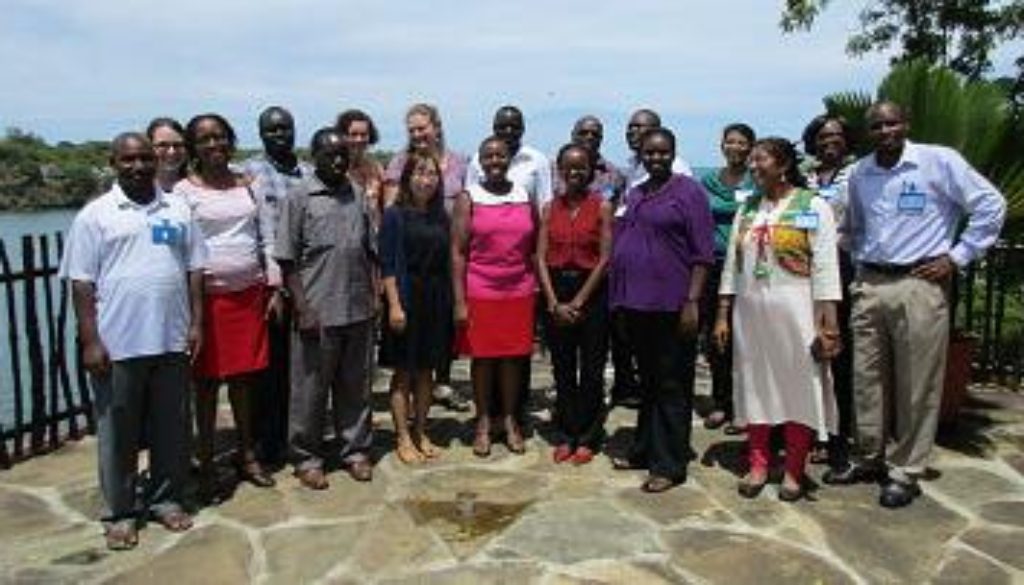Gender and Ethics at the Fourth Global Symposium on Health Systems Research
RinGs’ is excited to announce its involvement at the Fourth Global Symposium on Health Systems Research, held in Vancouver from 14-18 November 2016. The symposium focuses on resilient and responsive health systems for a changing world.
RinGs
We were excited to see that this year’s conference has a stream dedicated to issues of equity, rights, gender and ethics within health systems research. See below for a summary of sessions/ presentations focusing on gender and ethics at the Fourth Global Symposium on Health Systems Research. More details about the sessions will be included when they become available.
If you have a session related to gender and ethics at the conference let us know so we can include it in the list!
Skills-Building Sessions
How to do Gender Analysis in Health Systems Research
Session Organizer: Rosemary Morgan, Johns Hopkins Bloomberg School of Public Health, USA
Monday 14 November, 8:00am-12:00pm
Health systems are not gender neutral; yet, health systems research (HSR) often fails to sufficiently consider gender as a social relation. The aim of this participatory session is to provide those interested in HSR with an introduction about how to conduct gender analysis within HSR. The session will use exercises to outline what gender analysis is and how gender analysis can be incorporated into HSR content, process, and outcomes. Participants will be asked to consider how gender influences one or more of the WHO’s six health system building blocks.
Gender and rights-oriented health systems research: How to think about it, how to do it, and how to get results
Session Organizer: Sundari Ravindran, Sree Chitra Tirunal Institute for Medical Sciences and Technology, Trivandrum, India
Tuesday 15 November, 8:00-11:00am
The purpose of this session is to build on participants’ experience in undertaking research in gender and human rights with a focus on sexual and reproductive health (SRH) in health systems research. The session will also incorporate strategies for advocacy and the translation of the evidence generated into policy and implementation. It will explore how to frame research questions and the use of novel methods and analytical approaches to enhance the rigour and robustness of evidence generated. Discussions, based on shared experiences, will provide inputs for further enhancement of capacity building resources for gender and rights oriented health systems research.
Organized Panel Presentations
Power and prejudice: How does inequity play out in the institutions and processes of health systems research?
Session Organizer: Kate Hawkins, Pamoja Communications, UK
Too often inequities in terms of gender, age, class, sexuality, dis/ability, ethnicity, nationality within research systems and institutions are not the subject of enquiry. This session will provide a platform to interrogate some of these issues and formulate strategies to overcome the persistent abuse of power and prejudice that hampers health systems research.
Disability, equity and rights: Sharing intersectional approaches to building responsive, resilient and inclusive health systems
Session Organizer: Laura Dean, Liverpool School of Tropical Medicine, UK
The focus of this highly interactive session is to explore how health systems can be strengthened to be more responsive to the priorities of disabled people who often face vulnerability and marginalisation that is shaped by gender, poverty and sexuality.
Building Resilient and Responsive Health Systems in Fragile and Conflict Affected Contexts: Equity, Rights and Gender
Session Organizer: Valerie Percival, Norman Patterson School of International Affairs, Carleton University, Canada
This panel will share and update an e-resource on gender, equity and resilient health systems in fragile and conflict affected contexts. BuildingBackBetter.org analyses health system engagement in fragile contexts, and shows that such engagement can and should promote gender equitable health systems.
Individual Oral Presentations
- Gender and Ethics in practice: experiences of researchers conducting qualitative health policy and systems research studies – Sassy Molynuex, KEMRI-Wellcome Trust, Kenya
- Ethical practice in my work: community health workers perspectives using photovoice in Wakiso district, Uganda – Charles Ssemugabo, Makerere University, Uganda
- Gendered negotiations for research participation in community based studies: Implications for ethics and health research in Kenya – Dorcas M. Kamuya, KEMRI-Wellcome Trust, Kenya
- Participation in Health Systems: Gendered Power Relations in Health Committees in Cape Town, South Africa – Janet Austin, University of Cape Town, South Africa
Individual Poster Presentations
- Are women of Indian Sundarbans living in the Dark? A gender analysis of eye health in the Indian Sundarbans for responsive health systems – Debjani Barman, Institute of Health Management Research (IIHMR), Kolkata, India
- Gender, migration and intersectionality: Analysis to build resilient health systems for maternal and newborn health among migrant populations in Uganda – Richard Mangwi, Makerere University School of Public Health, Uganda
- Why aren’t women rising to the top? The gendered factors that affect women’s professional progression in the Cambodian health sector – Sreytouch Vong, Cambodia
- How gender roles and relations affect health workers’ training opportunities and career progression in rural Zimbabwe: Implications for equitable health systems – Stephen Buzuzi, Biomedical Research and Training Institute, Zimbabwe
- Exploring leadership within African health systems using a gender lens – Kelly Muraya, KEMRI-Wellcome Trust, Kenya
Are you interested in connecting during the conference and/or do you have a session on gender and/or ethics at the conference? Let us know in the comments below or e-mail us at RinGs.RPC@gmail.com!

